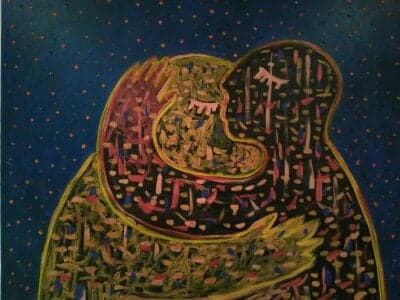Hope and the coronavirus outbreak (1):
A few first thoughts
I don’t really know what to make of what’s happening yet. ‘Normal’, such as it was, seems to have ended. It might come back, but for a long while at least most of us will probably be living in a kind of crisis consciousness.
Does this leave any room at all for ‘hope’? I think so, if we’re careful about what we might mean by it. Here are a few early, personal thoughts about what a hopeful approach to this crisis might look like (will probably develop this later).
Checking in. I don’t think any of us knows for sure what we’re in or where it will lead. I for one have been feeling confused and unsettled, which is exactly how I expect to be feeling. I’m feeling grief, too, which is building in anticipation of what may be coming. Others that I’ve heard from have said similar things.
Facing up. The crisis is just beginning. Official projections suggest that tens of thousands of people, possibly hundreds of thousands, are going to die in this country alone, once intensive care beds run out. This is a tragedy we can’t watch as if we were spectators (as we might watch a distant war on the news) – we’ll be witnessing it close at hand, some of us will suffer it directly.
Looking for promise. In confusion and grief, it seems odd indeed to look for signs of promise and the time isn’t always right for it. But it also seems important to try and, speaking personally, right now I find myself thrown back on the things that I love – people close to me, wild places, the seasons, my faith – and I’m reminded (because I need to be) that these are the heart of my life. I see people pulling together and looking out for people who might be more vulnerable to the virus, or to the loneliness of isolation, to the anxiety of the unknown, or to the activation of grief. And on the news are Italians serenading each other from balconies over deserted streets. I marvel at the intensely cooperative endeavour across society, across the world – of health professionals especially and of many others also. I am amazed. I feel inspired, thankful, and deeply moved. I find here a feeling for the world as a promising place. And I want to be in it, involved in doing something worthwhile.
Counting everyone’s power. The virus is nature being itself. Our bodies are nature being itself. They’re meeting each other in a wave that’s rising and will eventually fall again in its own time, and might rise again. We have to go through this – all we can do is reduce the wave’s size and shape so that fewer people die. If fewer die, it’s worth doing, even if thousands do die. If there were ever a situation where the power of every person counts for something, this is one.
Remembering what matters. For me this is the most important thing: to remember what I’m living for, which is to love what’s worth loving, which includes every person whether I know them or not. That means looking out for others. It also means caring for my own wellbeing, allowing space for the things that I enjoy, away from what’s distressing, and making a routine of it. At bottom, it means holding faith with being human, whatever the future may bring.
Standing with each other. A crisis consciousness is nothing new to millions of people who’ve lived through war, poverty, migration, and pandemics. The few people I know who’ve been through such trials are the most hopeful people I know. When I ask them what has helped the most, they say ‘being in it together’. The people most at risk now are older people in poor health, which tends to means people at the margins of society – who’s in this with them? Solidarity is not really solidarity unless it reaches the people who need it the most.
And here are three queries – two for later, and one for now:
- This is not a natural disaster, it’s a disaster precipitated by a global economic system that encourages ill-health. The virus has gone global because of global air travel. The suffering to come will be amplified by the chronic under-funding of health systems even in rich countries. Our fast-food, low-exercise societies generate the underlying health conditions that increase susceptibility. In the virus we meet nature at work. In the societal crisis around the virus we meet ourselves at work. What is this crisis teaching us about the ‘health’ of our economic system – the health of our society?
- If we’re fortunate, this crisis might throw us back on what matters most, which (I believe) is caring for, and enjoying, the health and wellbeing of ourselves and the earth. Or it might reinforce structures of violence: autocratic government, economic injustice, consumer-capitalism, political exclusion, and so on. We’re being challenged, I think, to decide who we are and mean to be, individually and as societies. What is this virus teaching us about the things that matter most, but which may have been forgotten?
- The crisis is going to hit the poorest people hardest. Economic deprivation is associated with weaker immune responses, poorer mental health, and greater social isolation, for example, even as working-class communities probably have the strongest stories of solidarity to tell and teach. But it’s the substantial economic fallout that’s likely to do the most damage in poorer families and communities. So a question, this time for right now, is where are these neighbourhoods in the government’s narrative of this crisis?
Meanwhile, I hope that you and we can stay well, remember the near neighbour and the far, and keep a feeling for what’s worth living for.
Please share…
…using the buttons below. Thanks.
